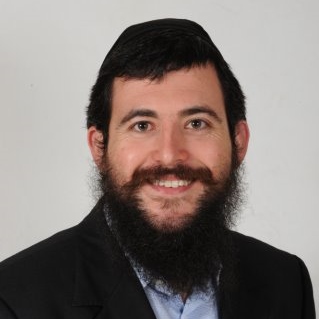
Religion

Never alone!
Rabbi Yehuda Stern, Sydenham Shul
“How can I alone carry your contentiousness, your burdens and your quarrels?” he said.
The Torah here uses the word “Eicha” which is often translated as “how”. But Eicha has another translation – woe. It is a word that expresses upset, pain and frustration.
This word is more commonly known from the Book of Lamentations that we read on the fast of Tisha B’Av, which we will observe this coming week. “Eicha Yoshva Badad; Alas – she sits in solitude!” says Prophet Jeremiah, describing the loneliness of Jerusalem following the destruction of the two Temples.
In both these sources, the verse makes reference to loneliness and solitude. Moshe felt alone when leading the Jewish People, and Jerusalem sat in solitude after the Temples lay in ruins. And in both, the Torah use the word Eicha – alas; woe – expressing feelings of hurt and pain.
Loneliness hurts because humans were not designed to be solitary creatures. The need to interact is deeply ingrained in our genetic code, to the extent that research shows that loneliness and social isolation are harmful to our health.
The subjective feeling of loneliness increases the risk of death by 26 per cent, according to a study in the SAGE journal, Perspectives on Psychological Science. A survey of more than 2 000 Americans, conducted by the Harris Poll on behalf of the American Osteopathic Association, showed that 72 per cent of Americans experience loneliness. And for many, it’s not just a once-in-a-while occurrence – one-third said they feel lonely at least once a week.
“It is not good for man to be alone,” G-d told Adam in the beginning of Genesis (2:18). This brought to the creation of Eve and to the first marriage of man and woman. They were there to support one another, keep each other company and to build G-d’s world together. This has remained the purpose of marriage until today.
Aristotle is quoted to have said: “The whole is greater than the sum of its parts.” This is known as “synergy”’ the combined power of a group of things when they are working together that is greater than the total power achieved by each working separately.
Many have argued that alone one can accomplish more. Whether it’s in prayer; when studying, or when working on community or charity work. They claim that others involved will distract them rather than assist them.
But our Sages have taught us the contrary. Prayer is more powerful when we pray with others; we have more clarity when we study with a learning partner (Chavruta); and our initiatives accomplish more when we work with a team. “Two are better than one,” says King Solomon in the Book of Ecclesiastes (4:9).




